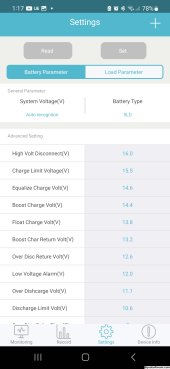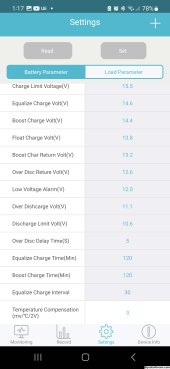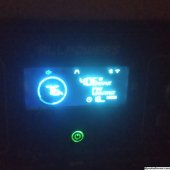You are kind of comparing apples and oranges there. How old were the Renogy panels and sunpower?
Sunpower website says warranty is for 80% of power production for 5 years which honestly is not good.
My 10 year old Renogy rigid are still outputting better than 90% and on a good sunny day exceed rated output.
Edit to say that very likely your 10-year old Renogy panels are superior in quality to the ones I bought less than a year ago.
::::
The rigid Renogy panels are less than a year old, they are kept stored away in their suitcase case 99% of the year, indoors. The Sunpower ones are less than 6 months old and are installed permanently on our camp trailer that spends 6 months of the year under a roof and the other 6 months exposed to the elements and sun.
If you’re saying Renogy is better than Sunpower based upon the longer warranty that Renogy provides, I’ll call that comparing apples to oranges. Of course, rigid panels will generally last longer than flexible. But having had to deal with the absolute nightmare known as Renogy customer service and their warranty process, I’ll call their warranty a joke.
What good is a warranty if they dodge your requests for support? How can you fulfill a warranty, no matter how good it looks on paper, if the company won’t answer your support requests, on their own in house support ticket system? I spent weeks dealing with this before I just gave up.
As for flexible panels, I have had good results with both cheap and quality ones. The keys to this, imo:
Keep the panels covered from the elements during winter.
Take measures to keep the panels from overheating, similar to keeping rigid panels from overheating. Our wood and canvas roof is much cooler than a metal roof.
Install flexible panels in a permanent and secure place- don’t use them by packing into the back of a car and unloading them on a regular basis- don’t let them flex on a regular basis.
Don’t travel to extreme hot locales, such as avoid the American southwest in summer.





